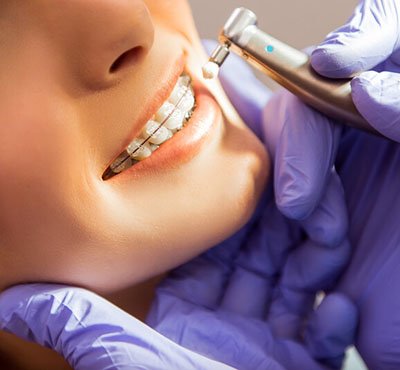Senior Dental Care – Addressing the Unique Oral Health Needs of Older Adults
As individuals age, their dental care needs often evolve, necessitating specialized attention to maintain optimal oral health. Senior dental care encompasses a range of considerations tailored to address the unique challenges older adults face. One significant aspect is the increased prevalence of conditions like gum disease and tooth decay due to factors such as reduced saliva production and medications that affect oral health. These conditions can escalate quickly if not managed effectively, underscoring the importance of regular dental visits and personalized oral hygiene routines. Furthermore, older adults may experience changes in their oral anatomy, such as receding gums or bone loss, which can impact the fit of dentures or dental implants. Properly fitted dentures are crucial not only for comfort but also for chewing efficiency and preventing oral sores. Dental professionals specializing in senior care are adept at assessing these changes and providing solutions that enhance functionality and comfort. Another critical aspect of senior dental care is the relationship between oral health and overall health. Research has shown links between gum disease and systemic conditions such as diabetes, cardiovascular disease, and respiratory infections.

For older adults, who may already be managing one or more chronic conditions, maintaining good oral hygiene can contribute significantly to overall well-being and quality of life. Dental professionals trained in senior care can coordinate treatment plans with other healthcare providers to ensure comprehensive care that addresses both oral health and systemic health concerns. Education also plays a vital role in senior dental care. Many older adults may not be aware of the specific oral health challenges they face or the importance of regular dental check-ups. Dental professionals can provide valuable information on maintaining oral hygiene at home, including proper brushing and flossing techniques adapted to individual needs. Additionally, they can offer guidance on nutrition choices that support dental health, such as foods rich in calcium and vitamin D for bone strength. Access to dental care is another significant consideration for older adults. Financial constraints, mobility issues, and lack of transportation can pose barriers to regular dental visits. Dental professionals specializing in senior care may offer solutions such as flexible scheduling, transportation assistance, or referrals to community resources that provide affordable dental services.
Lastly, preventive care is emphasized in senior dental practices to mitigate potential oral health issues before they escalate. Routine cleanings, fluoride treatments, and oral cancer screenings are essential components of preventive care that can help maintain oral health and detect problems early. Dental professionals may also recommend treatments such as dental sealants or remineralization therapies to protect vulnerable teeth from decay. In conclusion, senior dental care is essential for maintaining oral health, preserving overall well-being, and addressing the unique needs of older adults. By focusing on prevention, education, and personalized treatment plans, dental professionals specializing in senior care can support older adults in achieving and maintaining optimal oral health throughout their lives. Regular dental visits and contact us, combined with proper at-home oral hygiene practices and a healthy lifestyle, are key to promoting a healthy smile and a higher quality of life in later years.
